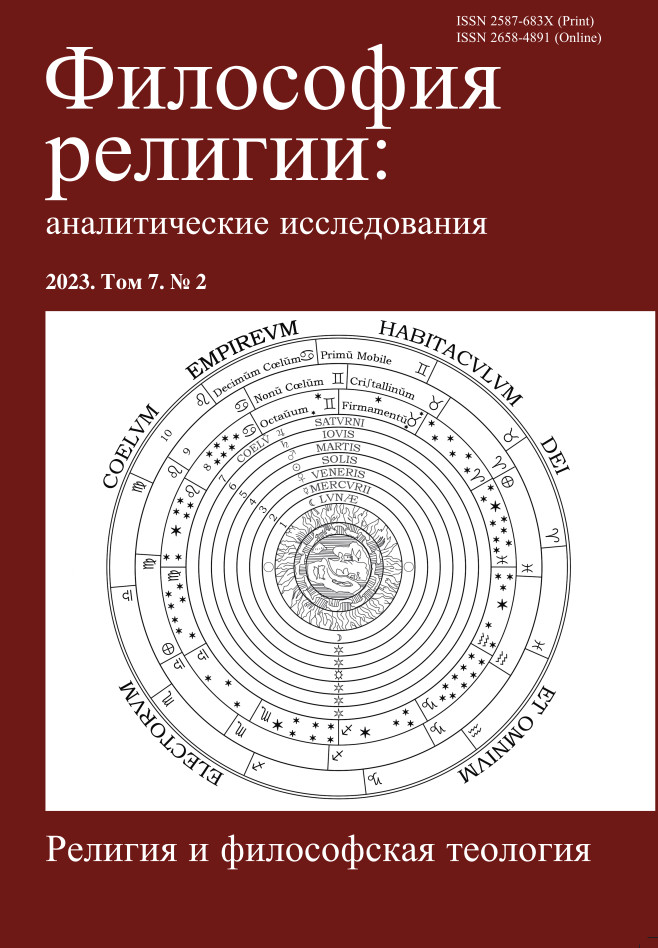Chr.A. Crusius’s Philosophical Theology
DOI:
https://doi.org/10.21146/2587-683X-2023-7-2-46-59Keywords:
theoretical natural theology, libertas contradictionis, libertas contrarietatis, the best world, cosmology, Chr.A. CrusiusAbstract
The theoretical natural theology of Chr.A. Crusius is presented in his major metaphysical treatise “The Outline of Necessary Truths of Reason, in so far as they are Opposed to Contingent Truths”. In this treatise the philosopher and theologian from Leipzig consistently sets forth proofs of Godʼs existence, Godʼs properties, and actions. Proving the existence and describing the properties of God, Crusius applies his a priori analytic method, while characterizing Godʼs actions and influences, he appeals to the synthetic method. The most extensive and original section is the section on the essence and properties of God, in which Crusius groups all the divine properties into two large classes: the inactive properties and the active, or energetic, properties. The key issue, which is related to the property of Godʼs perfection, is freedom. Freedom is divided into freedom of contradiction (libertas contradictionis) and freedom of opposition (libertas contrarietatis). Crusius asserts the infinity of both kinds of freedoms with respect to possibility, and their certain limitations with respect to actuality. The freedom of contradiction consists in the possibility to carry out an action or to refuse to carry it out. The freedom of opposition consists in the possibility, under the same circumstances, to make one or the other choice. In a polemic with G.W. Leibniz and Chr. Wolff, Crusius justifies both the freedom of contradiction and the freedom of opposition of God in the act of creation. Further, the justification has had direct cosmological consequences. Crusius denies the existence of the best world among the possible worlds and asserts the existence of some number of equally good worlds. This lets him demonstrate in the creation of the world the preservation of both the freedom of contradiction of God (the opportunity to create and not to create) and the freedom of opposition (arbitrary choice of one possible world among equally good worlds). Substantiating two kinds of Godʼs freedom in the act of creation, Crusius also argues for human freedom, religion, and morality, which would be impossible without the preservation of divine freedom. Further specification of the doctrine of equally good worlds and their properties has been specified by Crusiusʼ supporters A.F. Reinhard and D. Weymann. All these have triggered, in their turn, a polemic about optimism.

 This work is licensed under a
This work is licensed under a 
